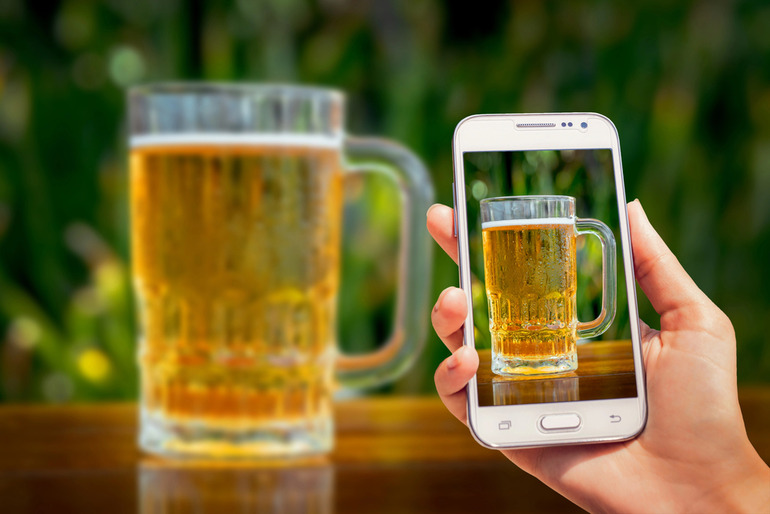In 2023, the U.S. beer market including homebrewing was estimated at $117 billion, with craft beer contributing $28.9 billion, accounting for 24.7% of the total market value. The overall beer market in the U.S. is expected to grow at a CAGR of 6.6% from 2025 to 2030. The industry has undergone massive changes in recent years, driven by digital technologies that are transforming traditional brewing methods and unlocking new possibilities. While the core ingredients of quality beer—malt, hops, yeast, and water—remain unchanged, homebrewers and professional brewers alike now have access to advanced tools and data to refine their craft.
In this article, we will explore how technology has revolutionized the craft beer industry, focusing on innovations such as automation, advanced analytics, and AI. We’ll discuss how brewers and homebrewing professionals use these tools to improve efficiency, creativity, and sustainability in brewing processes.
Automation and Data-Driven Brewing
Most of the major breweries in the industry are relying on high levels of automation, sensors, and analytics to enhance their ability to manage certain parameters in the brewing process. Temperature, pH, and other characteristics may also be tracked at faster rates and with less variability than when dependent on manual intervention. Brewers are able to detect problems faster and employ analytical decisions on recipes or processes. Automation also has the benefit of allowing highly standardized outputs in much greater quantities.
Smart brewing systems are controlled utilizing mobile applications and computers connected to the IoT. Brewers can track the operation and receive alerts anytime, anywhere. With such connectivity, brewmasters can oversee multiple facilities or new sites during expansion. Automation data also enables breweries to dig deeper into analytics and optimize recipes even further.
Advanced Analytics and AI
AI and analytics have had far-reaching effects on all industries, from online entertainment platforms such as this NJ online casino no deposit bonus from BonusFinder to content creation and digital marketing. Not surprisingly, artificial intelligence and machine learning are making their way into the brewing world as well.
Beyond gathering brewing data, AI can find patterns and insights that humans may miss. This allows for dialing in recipes and predictions to boost quality and efficiency. Anheuser-Busch InBev uses AI to predict the quality of barley shipments early in the supply chain. Similarly, AI can help predict beer’s taste profile and longevity based on data from the brewing process. Brewers may leverage AI to craft entirely new beer styles tailored to consumer trends and preferences.
Generative Design and Novel Ingredients
Generative design, taking cues from nature, can produce creative new recipes and brewing techniques. Developers create algorithms with parameters like taste, color, and alcohol content, and then use AI to generate numerous recipe options that meet the criteria. Brewers can select the most promising ones to brew test batches and further refine them until reaching a final recipe. This allows radical exploration of new ingredients and flavors. Smaller “craft” breweries are especially keen to experiment with unique concepts and stand out.
The growing selection of specialty malts, alternative grains, rare hops, and yeast strains provides plenty of options to work with. Brewers today can easily order these ingredients online and have them shipped from anywhere. Websites like Yakima Valley Hops have emerged as “online craft brewing superstores” with huge selections. This makes brewing highly customized beers at small scales feasible.
Direct-to-Consumer Channels
The rise of e-commerce has enabled small breweries to ship directly to consumers across the country. Using online platforms like Shopify and Square, craft breweries can build successful web stores and tap broader markets. Social media and targeted digital ads make it easier than ever to reach target audiences, like craft beer enthusiasts seeking limited-release brews. This allows niche breweries to thrive by showcasing experimental and custom beers.
Homebrewing Technology and Knowledge Sharing
A vibrant online community has emerged around homebrewing, aided by digital communication platforms. Homebrewers can exchange recipes and techniques through forums, blogs, YouTube channels, and podcasts. Technologies like automated brewing systems, mobile apps, and Wi-Fi-connected fermentation monitoring tools have made homebrewing easier, with more consistent results.
The collective wisdom around brewing grows each day, as both professionals and hobbyists share experiences. Homebrewers serve as an “advanced testing ground” trying unique ingredients and methods on small batches first. Some even go on to launch their breweries or collaborate with professionals.
Knowledge flows freely in the digital brewing world, leading to ever-evolving traditions and creativity. The digitization of the brewing industry has unlocked new possibilities for innovation and allowed brewers large and small to push boundaries.








